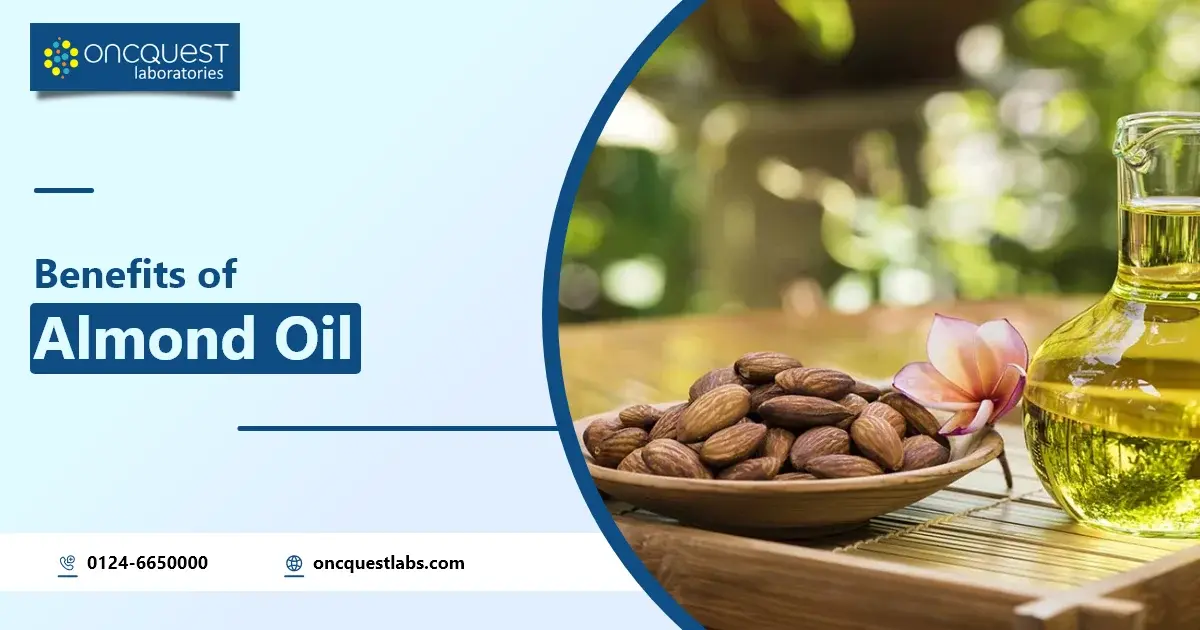Almond oil, derived from the seeds of the almond tree (Prunus dulcis), has been cherished for centuries for its myriad health and beauty benefits. This versatile oil is available in two primary types: sweet almond oil and bitter almond oil, each with distinct properties and uses. Sweet almond oil is the more commonly used variant, prized for its gentle nature and rich nutritional profile, making it a popular choice in skincare, haircare, and even culinary applications.
Historically, almond oil has held a significant place in traditional medicine systems, such as Ayurveda and Traditional Chinese Medicine, where it has been used to treat a variety of ailments, from skin disorders to digestive issues. Today, it continues to be a staple in beauty regimens and holistic health practices, thanks to its high content of vitamins, essential fatty acids, and antioxidants. Whether you’re looking to enhance your skincare routine, improve hair health, or boost your overall well-being, almond oil offers a natural solution with a range of scientifically-backed benefits.
Contents
Nutritional Value of Almond Oil
Here’s a table summarizing the nutritional value of almond oil:
| Nutrient | Per 100g | Health Benefits |
| Calories | 884 kcal | High energy content |
| Total Fat | 100g | Essential for energy, supports cell growth |
| Saturated Fat | 8-10g | Provides structure to cell membranes |
| Monounsaturated Fat | 70-80g | Improves heart health, lowers bad cholesterol (LDL) |
| Polyunsaturated Fat | 10-20g | Supports brain function, reduces inflammation |
| Omega-6 Fatty Acids | 10-20g | Essential for brain function and normal growth |
| Vitamin E | 26mg (130% DV) | A powerful antioxidant, protects cells from damage |
| Phytosterols | 35mg | Helps reduce cholesterol absorption in the body |
| Vitamin K | Trace amounts | Essential for blood clotting and bone health |
Note: Nutritional values can vary slightly depending on the brand and processing method.
This table provides a clear overview of the key nutrients found in almond oil and their associated health benefits.
Benefits of Almond Oil
Moisturizes Skin
Almond oil is a natural moisturizer that works wonders for the skin. Rich in fatty acids, it deeply hydrates the skin, locking in moisture and preventing dryness. Unlike heavier oils, almond oil is light and non-greasy, making it easily absorbable without clogging pores. This makes it suitable for all skin types, including sensitive and acne-prone skin. Regular application of almond oil can help soften rough patches, soothe irritation, and give the skin a smooth, supple texture. Its vitamin E content also helps protect the skin from environmental damage, making it an excellent choice for keeping the skin nourished and radiant throughout the day.
Promotes Hair Health
Almond oil is highly beneficial for promoting hair health. It is rich in essential nutrients like vitamins E, D, and B, as well as minerals such as magnesium and calcium, which are vital for maintaining strong and healthy hair. When massaged into the scalp, almond oil helps to nourish hair follicles, reduce hair fall, and encourage the growth of thicker, stronger hair. Its moisturizing properties also help to combat dryness and flakiness, preventing dandruff and soothing an itchy scalp. Additionally, almond oil adds a natural shine to the hair, making it appear smooth and silky. Regular use can improve overall hair texture and resilience, leaving your hair looking vibrant and well-nourished.
Reduces Dark Circles
Almond oil is a natural remedy for reducing dark circles under the eyes. Its anti-inflammatory and antioxidant properties help to lighten the skin and reduce puffiness. The vitamin E in almond oil nourishes the delicate skin around the eyes, promoting skin regeneration and reducing the appearance of dark circles over time. Regular application of almond oil improves blood circulation, which helps diminish discoloration and brightens the under-eye area. Additionally, its moisturizing properties keep the skin hydrated, preventing dryness and fine lines. By gently massaging a small amount of almond oil under the eyes before bedtime, you can wake up with refreshed, rejuvenated eyes and visibly reduced dark circles.
Anti-Aging Properties
Almond oil is renowned for its anti-aging properties, making it a popular choice in skincare routines. Rich in antioxidants, particularly vitamin E, almond oil helps combat free radicals that cause premature aging and skin damage. These antioxidants protect the skin from environmental stressors, such as UV rays and pollution, which contribute to the formation of wrinkles and fine lines. Additionally, almond oil’s emollient properties enhance skin elasticity, keeping it firm and smooth. Regular application of almond oil can reduce the appearance of wrinkles, fine lines, and age spots, promoting a youthful, radiant complexion. Its ability to deeply moisturize and nourish the skin further helps to maintain a healthy, glowing appearance as you age.
Treats Skin Conditions
Almond oil is an effective remedy for treating various skin conditions due to its soothing and anti-inflammatory properties. It is particularly beneficial for conditions like eczema, psoriasis, and dermatitis, where the skin becomes dry, itchy, and inflamed. The fatty acids in almond oil help to restore the skin’s natural moisture barrier, reducing dryness and irritation. Additionally, its gentle nature makes it suitable for sensitive skin, providing relief without causing further irritation. The oil’s emollient properties soften and smooth rough, flaky patches, while its rich vitamin E content promotes healing and repair of damaged skin. Regular use of almond oil can calm inflamed skin, reduce redness, and improve the overall texture and appearance of affected areas.
Improves Heart Health
Almond oil contributes positively to heart health thanks to its rich content of monounsaturated fats and antioxidants. The high levels of monounsaturated fatty acids in almond oil help lower bad cholesterol (LDL) while increasing good cholesterol (HDL), reducing the risk of cardiovascular diseases. These healthy fats also help improve overall heart function and maintain healthy blood pressure levels. Additionally, almond oil contains antioxidants like vitamin E, which protect the heart from oxidative stress and inflammation. Incorporating almond oil into your diet, in moderation, can support a healthy heart by promoting better cholesterol levels and reducing the risk of heart-related conditions.
Heals Chapped Lips and Rough Skin
Almond oil is highly effective in healing chapped lips and rough skin due to its rich moisturizing properties. The oil’s high fatty acid content deeply hydrates and nourishes dry, cracked lips, restoring their softness and smoothness. Regular application of almond oil creates a protective barrier that locks in moisture, preventing further dryness and irritation. For rough skin, such as on elbows and knees, almond oil’s emollient properties help to soften and smoothen rough patches, making the skin feel more supple and comfortable. Its vitamin E content also aids in skin repair and regeneration, promoting a healthier and more even skin texture. Applying almond oil regularly can help maintain well-hydrated, smooth, and soft skin.
Soothes Sunburn
Almond oil is an excellent remedy for soothing sunburned skin. Its rich blend of fatty acids and vitamin E helps to restore moisture and alleviate the dryness and discomfort caused by sunburn. The oil’s anti-inflammatory properties reduce redness and swelling, providing relief from irritation. Almond oil also promotes healing by nourishing and repairing the damaged skin. When applied gently to the sunburned area, it forms a protective barrier that locks in hydration and aids in skin regeneration. Regular use of almond oil can help prevent peeling and support the skin’s recovery process, leaving it feeling soothed and more comfortable.
Enhances Digestive Health
Almond oil can enhance digestive health in several ways. Its mild laxative effect helps to promote regular bowel movements, preventing constipation and supporting overall digestive function. The oil’s high content of monounsaturated fats and fiber also aids in maintaining a healthy digestive tract by reducing inflammation and promoting smooth digestion. Additionally, almond oil’s gentle nature makes it a suitable addition to the diet for soothing the digestive system and alleviating discomfort from bloating or acidity. By incorporating almond oil into your meals, you can support a balanced digestive system and contribute to overall digestive well-being.
Boosts Immunity
Almond oil boosts immunity through its rich nutrient profile, which includes antioxidants, vitamins, and essential fatty acids. The high levels of vitamin E in almond oil play a crucial role in enhancing immune function by protecting cells from oxidative damage and supporting the body’s defense mechanisms. Additionally, essential fatty acids, such as omega-3 and omega-6, contribute to the production of immune-boosting compounds and help reduce inflammation. These nutrients work together to strengthen the immune system, making the body more resilient against infections and illnesses. Regular consumption or application of almond oil can support overall immune health and help maintain a robust immune response.
Choosing the Right Almond Oil
Choosing the right almond oil involves several key considerations to ensure you get a high-quality product. Start by selecting sweet almond oil, which is derived from edible almonds and is suitable for skincare, haircare, and culinary use. Avoid bitter almond oil, as it contains compounds that can be toxic and are primarily used for industrial purposes. Opt for cold-pressed almond oil, as this method preserves the maximum amount of nutrients and beneficial compounds, making it ideal for cosmetic applications. Refined almond oil, while neutral in scent and flavor, is processed with heat and chemicals, which can reduce its nutritional value. Check the label for 100% pure almond oil and avoid products with added chemicals or synthetic ingredients. For the best quality, choose organic almond oil to avoid pesticides and synthetic fertilizers. Look for products in dark glass bottles to protect the oil from light and oxidation. Lastly, store almond oil in a cool, dark place and check the expiration date to ensure freshness. By paying attention to these details, you can select the best almond oil for your needs.
Conclusion
In conclusion, almond oil is a versatile and valuable addition to your health and beauty regimen, offering a wide range of benefits. From deeply moisturizing and nourishing the skin to promoting healthy hair, reducing dark circles, and supporting heart health, almond oil proves its efficacy through its rich nutrient profile. Its soothing properties make it effective in treating skin conditions and alleviating sunburn, while its role in boosting immunity and improving digestive health further enhances its appeal. When choosing almond oil, opt for cold-pressed, pure, and organic varieties to maximize its benefits and ensure quality. With proper use, almond oil can contribute significantly to overall well-being, making it a worthwhile investment for both personal care and culinary purposes.





